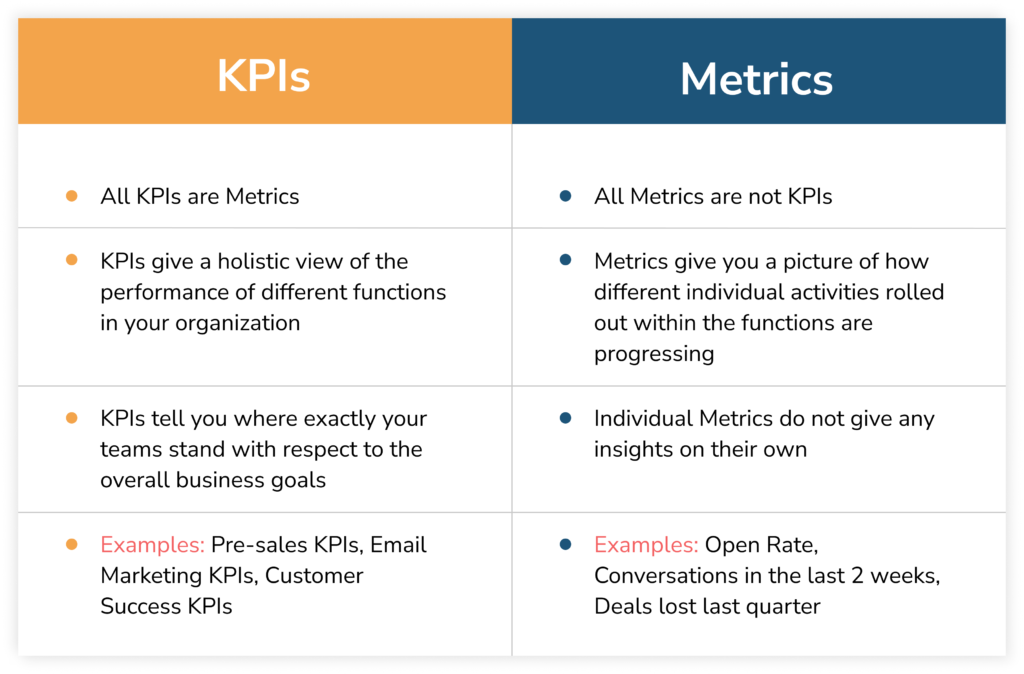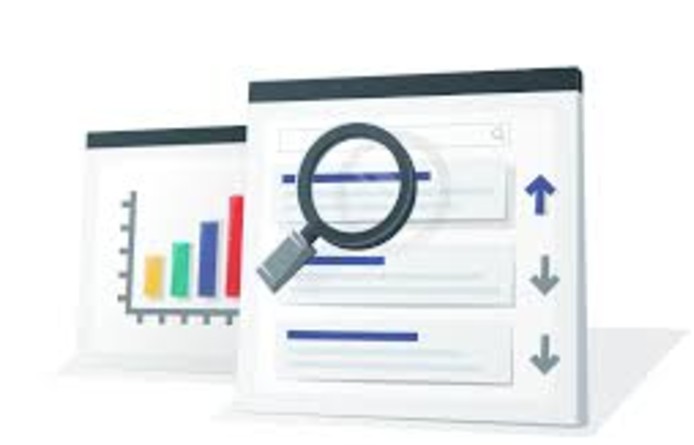When it comes to monitoring your website’s performance, finding the best SEO reporting tool is essential.
A good SEO reporting tool can provide valuable insights into how your website is performing, which can lead to improved rankings and increased traffic.
With so many options available, it can be overwhelming to choose the right one for your needs.
I’ve researched various tools and compiled a list of the best SEO reporting tools on the market today.
These tools not only track keyword rankings but also offer in-depth analytics and competitive insights.
You’ll want a tool that fits your goals, whether it’s for a small blog or a larger business website.
In this article, I will break down the features, pros, and cons of each tool to help you make an informed decision.
By the end, you’ll have a clear idea of which tool can best serve your SEO needs and enhance your online presence.
Table of Contents
Understanding SEO Reporting

SEO reporting is essential for tracking the performance of marketing efforts. It helps to evaluate traffic patterns, user engagement, and effectiveness of SEO strategies.
I will focus on the purpose of SEO reports and the key metrics I often observe.
Purpose of SEO Reports
The main purpose of SEO reports is to provide insights into website performance and growth.
They summarize data that reveals how well a site attracts and retains visitors.
With the right tools, I can automate report creation. This saves time and makes data analysis easier.
It also allows me to share results clearly with clients or team members.
SEO reports help identify trends over time. For example, I can see which keywords drive traffic and how they change.
Additionally, they highlight issues needing attention, such as slow-loading pages or broken links.
Overall, these reports guide me in adjusting strategies to meet goals.
Key Metrics and KPIs

When I analyze SEO reports, I focus on several key metrics and KPIs. These figures help me assess the effectiveness of my SEO efforts.
- Organic Traffic: This measures how many visitors come from search engines. I track this to gauge the success of my SEO strategies.
- Bounce Rate: This indicates the percentage of visitors who leave after viewing only one page. A high bounce rate may suggest that my content isn’t engaging enough.
- Conversion Rate: It shows the percentage of visitors who complete a desired action, such as signing up for a newsletter or making a purchase. Monitoring this helps me understand my site’s effectiveness.
- Keyword Rankings: I track how my targeted keywords perform in search results. This helps me know if my optimization is working.
By focusing on these metrics, I gain a clearer picture of my SEO performance and can make informed decisions.
Some of the best SEO reporting tools help me effortlessly track and analyze these important data points.
Features of Top SEO Reporting Tools
When evaluating the best SEO reporting tools, I focus on key features that enhance usability and effectiveness.
Customization options, integration capabilities, and automated reporting stand out as crucial elements.
These features ensure that I can tailor the tools to meet my specific needs while streamlining my workflow.
Customization Options
Customization options are essential for tailoring reports to my audience.
A good SEO reporting tool allows me to modify templates, choose metrics, and adjust layouts.
I can often add my branding and select specific data points to highlight.
Many tools offer drag-and-drop interfaces. This makes it easy to arrange elements based on what I want to show.
I can also filter data according to my priorities, like organic traffic or conversion rates.
For instance, some tools allow me to create custom dashboards.
I can select KPIs that matter most to my strategies, giving a clearer picture of performance without unnecessary clutter.
Integration Capabilities
Integration capabilities are another important feature.
The best SEO reporting tools connect seamlessly with other platforms I use.
Whether it’s Google Analytics, social media channels, or CRM systems, integrations help me gather comprehensive data.
These connections make it easier to analyze performance across multiple platforms.
I can pull data from various sources into one location.
This means I spend less time switching between applications and more time analyzing results.
Not all tools support the same integrations. So, I always check compatibility with my existing tools.
A tool that integrates well can significantly enhance my efficiency and the accuracy of my reporting.
Automated Reporting
Automated reporting is a feature that saves me valuable time.
With automation, I can schedule regular reports to be generated and sent. This allows me to focus on analysis instead of tedious report creation.
Many tools offer various customization options for automation.
I can select which metrics to include, how often reports are generated, and who receives them.
This means my reports are always up-to-date without requiring manual input.
Automation helps in maintaining consistency in my reporting.
I can ensure stakeholders receive regular updates and insights, keeping them informed about our SEO performance without added effort on my part.
Evaluating SEO Reporting Tools
When I look at SEO reporting tools, I focus on two key areas: accuracy and reliability, as well as user interface and experience.
These aspects are crucial for ensuring the tools I choose deliver clear, trustworthy data and are easy to use.
Accuracy and Reliability
Accuracy is one of the most important factors in an SEO reporting tool.
I want to know that the data I receive is correct and comes from reliable sources.
For example, when tracking keyword rankings, it’s vital that the tool updates information frequently and uses various search engines to give a complete picture.
To assess reliability, I often investigate the tool’s track record.
Tools like Semrush and Moz are known for their solid performance in delivering accurate data.
I also check user reviews to see if users have encountered issues with the tool’s accuracy or downtime.
This step helps me ensure that I can trust the insights I gather for my SEO strategy.
User Interface and Experience
The user interface and experience directly impact how efficiently I can use an SEO reporting tool.
A clean, intuitive layout makes it easier for me to navigate the platform and generate reports quickly.
Features such as drag-and-drop report builders and customizable dashboards enhance the usability of the tool.
I also pay attention to how the tool presents its data.
Visual elements like charts and graphs help me understand trends and insights at a glance.
Tools like Screaming Frog offer detailed views of website architecture, making it simpler for me to identify technical SEO issues.
Ultimately, a well-designed tool saves me time and allows me to focus on optimizing my content effectively.
Cost Considerations
When selecting the best SEO reporting tool, costs can vary widely.
It’s important to understand the differences between free and paid tools and the various pricing models available.
This knowledge will help me make a more informed choice tailored to my budget and needs.
Free vs. Paid Tools
Free tools can be a great starting point for those new to SEO reporting.
They often provide basic features, allowing me to get a sense of how reporting tools work without financial commitment.
Some popular free tools include Google Analytics and Ubersuggest. However, their limitations might become apparent as I dive deeper into SEO.
Paid tools, like Semrush and Ahrefs, offer advanced features and more robust data.
While they come with a monthly fee, starting at around $99, the investment generally leads to better insights and greater efficiency.
The features include in-depth analytics and customizable reporting, which prove valuable as I manage larger projects.
Pricing Models
There are different pricing models to consider when choosing an SEO reporting tool.
Many offer monthly subscriptions, which provide flexibility.
For example, I can choose a plan from Ahrefs that starts at $99/month, allowing me to upgrade as needed.
Some tools also provide annual pricing, which may offer a discount for upfront payment.
Others have tiered pricing, where additional features become available at higher levels.
For instance, BrightEdge and SE Ranking have various tiers to accommodate different needs, helping me select a plan that fits my budget while providing essential reporting features.
Benefits of Utilizing SEO Reporting Tools
Using SEO reporting tools provides a significant advantage in analyzing data and making informed decisions.
These tools help me understand performance metrics clearly and identify areas for improvement.
Enhanced Data Analysis
With the best SEO reporting tools, I can break down complex data into simple visuals.
This allows me to see what’s working and what isn’t.
For instance, Google Looker Studio helps me track key metrics like organic traffic and keyword rankings.
I can also analyze backlinks, site audits, and competition easily.
The detailed insights from these tools enable me to focus on important factors like page load speed and mobile usability.
This enhanced data analysis ensures I make choices based on facts rather than guesses.
Improved Decision Making
Having access to accurate and organized data makes my decision-making process smoother.
SEO reporting tools provide me with real-time information, allowing me to adjust strategies quickly.
For example, if I notice a drop in traffic, I can investigate the cause immediately.
Additionally, tools like SEO PowerSuite give me comprehensive reports that guide my next steps.
By understanding which keywords drive traffic, I can refine my content strategy to target ideal audiences better.
This level of insight allows me to allocate resources effectively, ensuring that I focus on actions that yield the best results.
Popular SEO Reporting Tools Comparison
In my experience, knowing the right SEO reporting tools can greatly impact a website’s performance. Below, I detail three popular tools, highlighting their features and benefits.
Tool A Overview
Screaming Frog is a well-known website crawler that I find incredibly effective for technical SEO.
It analyzes website architecture, identifying key elements like broken links, redirects, and missing metadata.
With Screaming Frog, I can generate detailed reports on every aspect of my site.
This tool is particularly useful for large websites that need comprehensive audits.
It has both free and paid versions, allowing flexibility based on my needs.
Another great aspect is its integration with Google Analytics and Search Console.
This means I can consolidate my data and insights in one place for better analysis.
Tool B Overview
Google Analytics 4 (GA4) offers robust analytics for tracking traffic and user engagement.
I appreciate its ability to provide insights across various metrics, such as users, sessions, and conversions.
In the context of SEO, GA4 allows me to see user behavior in detail.
It integrates well with other Google services, making it easier to pull valuable data.
The event tracking feature lets me monitor how users interact with content, which guides my optimization strategies.
While GA4 is complex, the insights it provides are unparalleled.
I can customize reports to focus specifically on SEO performance, making it a vital tool in my arsenal.
Tool C Overview
Raven Tools stands out for its custom reporting capabilities.
I often use it for creating branded reports tailored for clients.
This tool offers over 300 report templates, which I can easily modify to suit specific needs.
Raven Tools provides social media, SEO, and PPC tools all in one place.
This helps me streamline my reporting process and saves me time.
Its user-friendly interface allows me to gather data from various sources, presenting it in clear, shareable formats.
Additionally, the ability to automate reports is a significant advantage.
I can schedule reports to be sent directly to clients, enhancing my professional services.
Implementing SEO Reporting Tools

Implementing SEO reporting tools can greatly enhance the effectiveness of my digital marketing strategy.
By carefully setting the stage and addressing common challenges, I can maximize the benefits these tools offer.
Setting Up for Success
To set up for success with SEO reporting tools, I first need to choose the right tool that fits my specific needs.
Some of the best SEO reporting tools, such as SEO PowerSuite and Screaming Frog, offer features tailored for different aspects of SEO.
Next, I focus on organizing my data.
I create clear categories for tracking keywords, backlinks, and site audits.
Having a clean and structured data set simplifies report generation.
I also establish regular intervals for generating reports to monitor performance trends effectively.
Lastly, educating my team on how to interpret the reports helps us all stay aligned on goals.
This way, we can make informed decisions based on actionable insights rather than just numbers.
Common Challenges and Solutions
It’s common to face challenges when implementing SEO reporting tools.
One issue I encounter is data overload, which can confuse my analysis.
To solve this, I prioritize key metrics that directly align with my business goals.
This targeted approach keeps my reports focused and relevant.
Another challenge is integrating tools into existing workflows.
Sometimes, using multiple tools creates complexity.
I tackle this by selecting an all-in-one platform when possible.
This streamlines my processes and reduces the need for manual data entry.
Finally, staying up to date with changing SEO algorithms can impact my reporting accuracy.
I make it a practice to regularly review and adjust my reporting criteria to reflect these changes, ensuring my analysis remains valid and beneficial.
Optimizing SEO Strategies with Reporting Insights
To improve my SEO strategies, I rely on data from the best SEO reporting tools. These tools provide valuable insights that guide my decisions.
Key Insights to Monitor:
- Page Speed: I check how quickly my pages load. Faster pages usually rank better.
- Keyword Performance: I track which keywords bring traffic and need more focus.
- Traffic Sources: Knowing where my visitors come from helps me optimize my marketing efforts.
Using reporting tools allows me to visualize my data effectively.
For instance, I use tables and graphs to compare performance over time. This helps me identify trends and adjust my strategy accordingly.
For actionable insights, I look at customizable reports.
These can highlight areas for improvement, such as underperforming pages or missed keywords.
I also use tools like Google Analytics 4 for deeper analysis.
It tracks user behavior and provides metrics that are essential for my optimization process.
In my experience, leveraging reporting tools enhances clarity on my SEO efforts.
The data not only shows what’s working but also points out what needs fixing. By focusing on these insights, I can make more informed decisions and continually refine my approach.
FAQ: Best SEO Report Tool
What is the Best SEO Report Tools?
The Best SEO Report Tools is a platform that helps you generate detailed, accurate, and easy-to-understand SEO reports. It provides insights into keyword rankings, site performance, backlinks, and overall SEO progress. Examples include SEMrush, Ahrefs, and Google Data Studio.
Why do I need the Best SEO Report Tools?
The Best SEO Report Tools allows you to track the success of your SEO strategies, identify areas for improvement, and present professional reports to clients or stakeholders. It simplifies data collection and visualization, saving you time and effort.
What features should I look for in the Best SEO Report Tools?
When selecting the Best SEO Report Tools, prioritize features like customizable reporting, integration with analytics tools, multi-language support, real-time updates, and the ability to automate recurring reports.
How does the Best SEO Report Tools benefit SEO agencies?
For agencies, the Best SEO Report Tools is essential for managing multiple clients. It enables automated reporting, white-label options for branding, and collaboration features, ensuring seamless communication and transparency with clients.
Is there a free Best SEO Report Tools available?
Yes, tools like Google Data Studio and Google Search Console are free options that can act as the Best SEO Report Tools for those on a budget. While they might lack advanced features, they are excellent starting points for creating effective reports.


